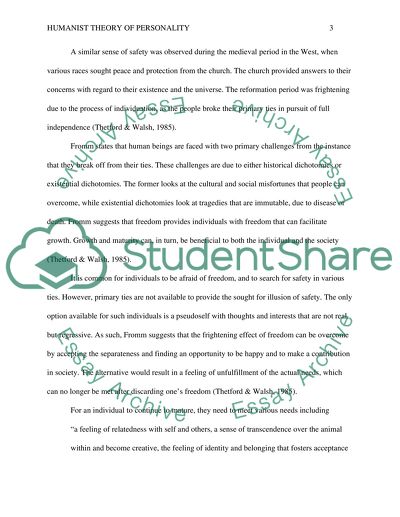Humanist Theory of Personality- Fromm Essay Example | Topics and Well Written Essays - 500 words. Retrieved from https://studentshare.org/psychology/1603007-humanist-theory-of-personality-fromm
Humanist Theory of Personality- Fromm Essay Example | Topics and Well Written Essays - 500 Words. https://studentshare.org/psychology/1603007-humanist-theory-of-personality-fromm.


